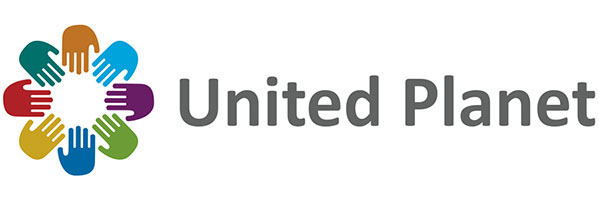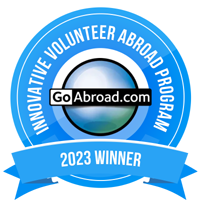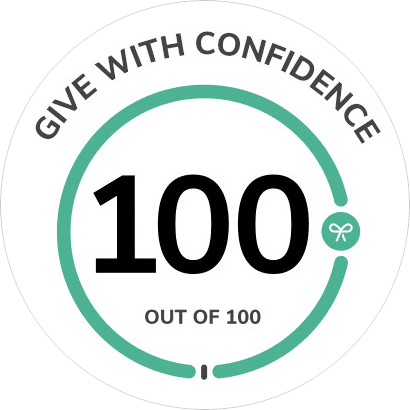Emily Deacon, a student at the University of Otago in New Zealand, recently returned from an eye-opening, month-long healthcare Quest in Dar es Salaam, Tanzania, Africa. She and her friend Lucy, both of whom are involved in the healthcare field, worked in a children’s cancer ward of a public hospital in the city. Aside from their volunteer work, Emily and Lucy definitely made the most of their time in Tanzania, exploring the many markets and historical sites, forming bonds with their host family, and even participating in an overnight safari in Serengeti National Park!

After returning to New Zealand, Emily wrote a wonderful travel guide to the city of Dar es Salaam, where she and Lucy spent most of their United Planet Quest. She provides detailed pointers and tips regarding public transportation, shopping in Tanzania’s many markets, and personal safety, and even offers suggestions for weekend excursions and sightseeing! Emily generously shared her guide with us, and we have published it below. If you are planning to volunteer in Tanzania, then this guide is a must-read!
![]()

![]() A Travel Guide to Dar es Salaam, by United Planet volunteer Emily Deacon
A Travel Guide to Dar es Salaam, by United Planet volunteer Emily Deacon
With the right attitude, the right knowledge, and the right help, any travel abroad experience is destined to be amazing. Volunteering, especially in Africa, goes one step further: it’s life-changing. Lucy and I spent one month in Tanzania working in the main public hospital in Dar es Salaam. While this city is not the official capital of Tanzania, it’s by far the largest and one of the most developed cities in what is certainly still a third world country. We worked in the children’s cancer ward, teaching in the small classroom set up to accommodate the children’s long stays in the hospital, and attempted to keep them up-to-date with their education. Lucy and I, although early into our studies, are both in the health profession (I am studying medicine), and our location offered us the unique chance to experience healthcare in a country so different from the Western experience we are used to in New Zealand.
United Planet supported us throughout our Quest, and made the transition to life in Dar es Salaam much more enjoyable. By writing this guide, I hope to provide you with some ideas about your work and environment before you depart, and offer some hints we wish we knew, not just for working but for general living in Dar es Salaam and beyond.

The Tanzanian culture is hard to sum up in one word. It’s so different from our own, and so it can be exciting, fascinating and sometimes very intense. Dar es Salaam is a business city, and is not a common tourist destination. This means that white people stand out considerably and although the locals are usually very friendly, they can be very forward, even pushy, in an attempt to sell you local items. The local term to describe a white foreigner is “Mzungu” and we could often hear it cried out after us in markets or busy streets. It’s the general assumption of the Tanzanians that all white people are rich, so expect surprise if you are unwilling to purchase everything. There is of course no obligation to buy anything, so we found it best to be assertive. Make it clear you are not interested, and in crowded markets it’s easier to simply avoid conversation, as it can then take hours to get past everyone! The most common street greeting is “mambo” or “jambo,” to which you can simply reply “poa”. The latter actually just means ‘cool,’ but is a popular phrase which the Tanzanians use in many circumstances, especially as a reply.

In particularly crowded places, it can feel far too difficult to try and reply to everyone, so if we were busy we often just walked quickly, pretending to be oblivious to the mixture of Swahili and English following our progress. It’s important to realise that sales is the livelihood of many people, and to not be personally insulted by the demanding nature which you will sometimes experience. Just learn a few good Swahili words, particularly “hapana” (NO) and walk away.

There are many options for public transport in Dar es Salaam, and private vehicles are pretty rare. What we found to be the overall best option was the dala dala. This is an extensive system of mini buses – they are crowded and boiling hot but very, very cheap. In Dar es Salaam, one journey will usually cost 300 Tanzanian shillings, which is equivalent to about 0.19 USD! During the day, they are also pretty safe, providing you are smart and keep your wallet or handbag close. This public network is very popular, so you need to be quite ‘assertive’ to get a seat or sometimes even get through the door! We were also initially astonished by how many people the conductors manage to fit in the door, so expect people to be filling the aisles, doorway, etc., and leave any ideas about a ‘personal bubble’ at home.
 Other options are the “peke-peke” (motorbike) for one passenger or the “bajaji” (3 wheeler car) for up to three passengers. These are a bit more expensive, but prices are negotiable and they are brilliant for one off journeys in the evening or during rush hour when the dala dala is less advisable. Often, your host family or United Planet coordinator will have a known driver you can get the number of, which increases the safety of the service, but these options have a pretty good reputation. The last option is the taxi. Unfortunately, although the lure of air-conditioning is very tempting, these have a pretty notorious reputation so it’s not advisable to ever jump into a random taxi. Instead, get a number of a known driver from your host family, or if staying at a hostel or motel, ask them to arrange one for you as they will also have a list of reputable drivers. In this case, taxis can be great, but be aware they are the more expensive option so are not practical for everyday use.
Other options are the “peke-peke” (motorbike) for one passenger or the “bajaji” (3 wheeler car) for up to three passengers. These are a bit more expensive, but prices are negotiable and they are brilliant for one off journeys in the evening or during rush hour when the dala dala is less advisable. Often, your host family or United Planet coordinator will have a known driver you can get the number of, which increases the safety of the service, but these options have a pretty good reputation. The last option is the taxi. Unfortunately, although the lure of air-conditioning is very tempting, these have a pretty notorious reputation so it’s not advisable to ever jump into a random taxi. Instead, get a number of a known driver from your host family, or if staying at a hostel or motel, ask them to arrange one for you as they will also have a list of reputable drivers. In this case, taxis can be great, but be aware they are the more expensive option so are not practical for everyday use.

One of the great things we found about volunteer work is that there is always free time to explore the city on weekends or in the early evening. Dar es Salaam is a bustling city of 5 million people, and the streets seem to never be empty. Markets can be found everywhere, from small local street ones to massive complexes spanning multiple blocks. If you are able to embrace the intense heat and pushing crowds, these are fascinating places to explore. There is an impressive variety to be found, from lines of delicious tropical fruit, to brightly patterned clothing and material, music, DVDs, shoes and endless lists of other items. The main market is Kariakoo, which is easy to find as it’s an end dala dala stop: simply find any dala dala marked ‘K/Koo’ and check with the conductor that it’s going in the right direction. Another slightly smaller market which also has great items is Mwenge, also an end dala dala stop.
Kariakoo is open all the time, but we would not recommend it past about 6 pm, as the atmosphere changes to feel much less safe in late evening. It’s important to keep close hold of your possessions and not to bring anything too valuable, such as a camera. Photographs need to be taken with care, and avoid taking pictures of the locals or their stores, etc., without asking, as it is seen as a big insult to them otherwise. The environment is fairly hectic but also very exciting. Markets don’t have a fixed price, and we enjoyed bargaining for all our goods. It’s a wise idea to shop around and check out prices and always try to decrease their first offer – often start with an offer half of theirs. If at all possible, learn the numbers in Swahili, as being able to bargain in their price greatly increases the deals you can get!

If you have a few days free, we highly recommend a trip to Zanzibar, the nearby spice island. It has beautiful beaches, a historic stone town, spice tours, and many other tourist attractions which make it a great break from the dust and heat of Dar es Salaam. Ferries leave a few times per day – usually there is one at 8 am, 12 pm, 3 pm, and an evening one, but it is important to check the website or go early as these times can change or fill up. There are many different ferries, but the only one endorsed by the Lonely Planet guide book is AZAM ferries. We highly recommend you stick to this, as there have been many cases of other ferries sinking or simply being a scam. Take a dala dala to Posta, and walk straight along the street from the post office to Kivikoni front, which is the road parallel to the ocean. Luckily, the AZAM building is bright blue glass and opposite the main cathedral, and so is easy to find. Unfortunately, the area is full of touts who will try and sell you a cheaper ticket, but we recommend ignoring them all and going to the official office. Tickets cost 35 USD or about 55,000 TSH, and you MUST bring your passport! The ferry ride takes about two hours and is a beautiful trip.
 Arriving in Zanzibar can be a shock, as there is some discrepancy regarding the island’s attachment to mainland Tanzania. Expect to have to fill out customs documentation and present your passport as you disembark the ferry. As Zanzibar is such a tourist attraction, there is a huge number of hotel touts and taxis all trying to get your attention as you leave the ferry terminal. This is pretty overwhelming and it’s very difficult to determine who is legitimate, so we recommend booking some accommodation before you go. This can be done over the internet or by getting a phone number from the Lonely Planet guidebook, which was highly valued on our trip! We would recommend ‘NEW TEDDY’S PLACE,’ which is an affordable hostel on Paje Beach, with everything from a bar to beds set in the soft Zanzibar sand. It’s over one hour via dala dala from the ferry terminal, but is right by an incredible beach. Any hostel should be able to set you up with activities once there. We recommend taking a spice tour as the Zanzibar spices are amazing. We got to taste many different spices and fruits and had a great time. Old Stone Town also has many historic places to visit, and is easy to tour on your own rather than with a guide, so you can stop at whatever shops or historic buildings you choose.
Arriving in Zanzibar can be a shock, as there is some discrepancy regarding the island’s attachment to mainland Tanzania. Expect to have to fill out customs documentation and present your passport as you disembark the ferry. As Zanzibar is such a tourist attraction, there is a huge number of hotel touts and taxis all trying to get your attention as you leave the ferry terminal. This is pretty overwhelming and it’s very difficult to determine who is legitimate, so we recommend booking some accommodation before you go. This can be done over the internet or by getting a phone number from the Lonely Planet guidebook, which was highly valued on our trip! We would recommend ‘NEW TEDDY’S PLACE,’ which is an affordable hostel on Paje Beach, with everything from a bar to beds set in the soft Zanzibar sand. It’s over one hour via dala dala from the ferry terminal, but is right by an incredible beach. Any hostel should be able to set you up with activities once there. We recommend taking a spice tour as the Zanzibar spices are amazing. We got to taste many different spices and fruits and had a great time. Old Stone Town also has many historic places to visit, and is easy to tour on your own rather than with a guide, so you can stop at whatever shops or historic buildings you choose.
Our main advice is not to accept any help from the local men, no matter how much they push you. This is usually a money making scheme, leaving you in a very difficult situation. Read the bus signs and wait for a different dala dala if you don’t feel comfortable with attempts to coerce you into the right one! Just ask your accommodation for advice and they can always arrange a good taxi to pick you up upon arrival. With these simple strategies to stay safe, Zanzibar can be an incredible place to visit.

If at all possible, whilst in Tanzania, go on a safari! They are quite expensive, but utterly incredible. We felt we had to make the most of this opportunity, and were rewarded by seeing a large amount of Tanzania’s famous animals, including lions, elephants, giraffes, buffalo, monkeys, zebras, wildebeests and many, many more. There are safaris for every budget and time-frame and can be tailored to your requirements. The most famous place is the Serengeti National Park, which is accessed from Arusha, which is a one-hour flight or ten-hour bus ride from Dar es Salaam. We chose to fly, but although a very long trip, taking a bus using the ‘Dar Express’ is apparently not a bad option as it’s air conditioned!

If possible, find a group to fill one of the safari cars as it makes the trip much cheaper. We asked around other United Planet volunteers, and the orphanage they worked at helped us arrange the whole trip. We personally recommend the company ‘Pure Afro Travel,’ as they gave us a brilliant price. Mention that you were advised by previous United Planet volunteers! The trip is tailored to your budget, so we took the tenting option rather than staying in one of the park resorts, which was awesome as it’s apparently pretty safe but you can hear wild animals at night!
Overall, we hope you have an incredible time on your volunteering Quest! Whatever you are doing, wherever you are working, it’s bound to be great. Treat every day as an adventure and an opportunity to learn more about life and about yourself. Everything will seem new and different, embrace it. Lucy and I wish you the very best and hope that you found our experiences helpful as you go and discover Tanzania for yourself.![]()
Emily, thank you for all your helpful information and for working to ensure that future volunteers have just as amazing an experience as you and Lucy did! For more information about volunteering in Africa, visit our volunteer in Africa page. You can also give us a call at 1-800-292-2316 or email us at quest@unitedplanet.org!
ABOUT UNITED PLANET
United Planet is a non-profit organization with a mission to create a global community, one relationship at a time. Established in 2001, United Planet offers volunteer abroad, virtual internships, internships abroad, gap year volunteering, and global virtual exchange in more than 40 countries.




